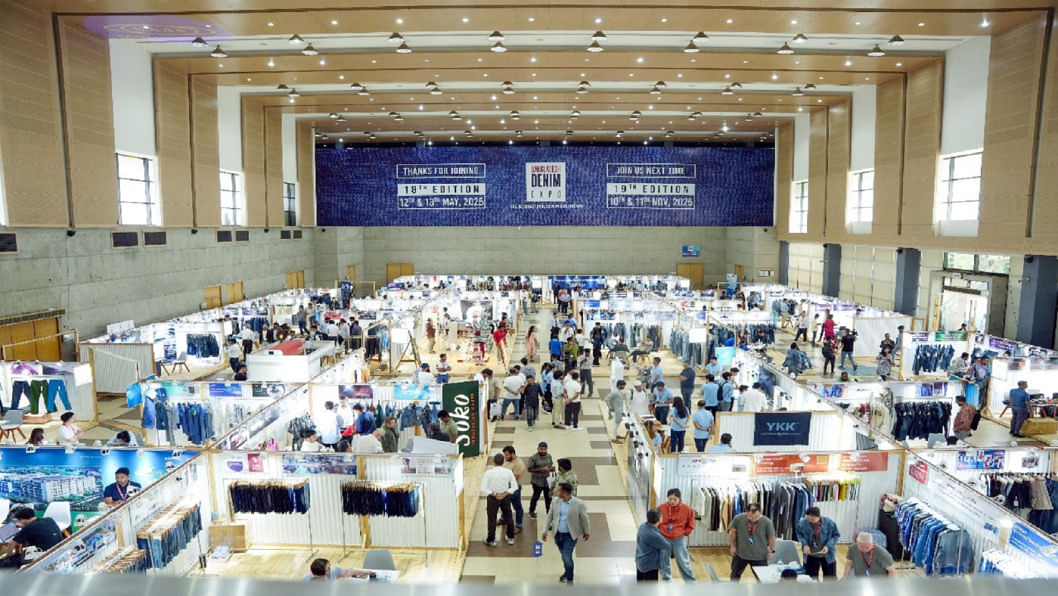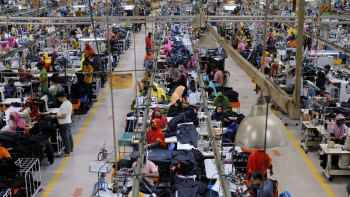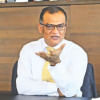Local RMG to remain competitive even if tariffs rise

Bangladesh should improve garment quality and delivery speed amidst intense competition in global supply chains arising from US President Donald Trump's recent reciprocal tariffs, said some international traders today.
Bangladesh has the opportunity to retain its competitive edge due to its large-scale production capacity, something international clothing retailers and brands always take into consideration, they said.
China and Vietnam are facing higher tariffs than Bangladesh in the US market, but there are others facing far less, such as India, Pakistan, Kenya, Jordan and Egypt, they said.
The latter do not have high production capacities, for which they cannot cater to large-volume work orders, they added.
"There is no way to replace Bangladesh because of its production capacity… It is not a matter of tariffs only," said Matteo A Urbini, managing director of Italy-based Soko Chemicals.
He was talking to The Daily Star while attending the 18th edition of Bangladesh Denim Expo at the International Convention City Bashundhara in Dhaka.
Urbini supplies a technology based on a chemical called "hydrogel" for washing denim fabrics to 60 companies in Bangladesh.
The technology is said to require just eight litres of water to wash one kilogram of denim fabric, whereas conventionally 80 litres are required.
Bangladesh is still competitive, said Herve Denoyelle, a representative of French hemp and flax fibre manufacturer The Flax Company, when asked about alternative clothing sourcing destinations to Bangladesh.
Bangladesh and China will remain competitive for mass consumption. Once the final rates of US tariffs are decided after the ongoing 90-day pause, business will grow again, he said.
Products from China and Vietnam will become more expensive because of their higher tariff rates, and Bangladesh should focus on recycled and sustainable products, he said.
His company produces 8,000 tonnes of fibre a year and supplies nearly 100 tonnes to 10 companies in Bangladesh for the manufacture of denim fabrics.
Robert Deakin, sales director of China-based Deyao Textile, which manufactures denim fabrics, said he was cautiously optimistic about Bangladesh.
The final tariff rates are yet to be decided, and business will prevail even if a 37 percent tariff is imposed on Bangladeshi products, he said.
The two-day exposition has brought 57 exhibitors from 13 countries, including India, Pakistan, China, Turkey, Spain, Italy, Vietnam, the United Arab Emirates, Germany, Switzerland and the USA, according to a statement from the organiser.
"Bangladesh has emerged as the fastest-growing apparel exporter to the United States in the first quarter of 2025, posting the highest year-on-year growth of 26.64 percent," said Mostafiz Uddin, founder and CEO of Bangladesh Denim Expo.
This placed Bangladesh ahead of other major exporters such as India (24.04 percent), Pakistan (17.49 percent), Vietnam (13.96 percent) and China (4.18 percent), he said.
Bangladesh is the largest denim exporter to both the US and Europe, he added.

 For all latest news, follow The Daily Star's Google News channel.
For all latest news, follow The Daily Star's Google News channel. 










Comments